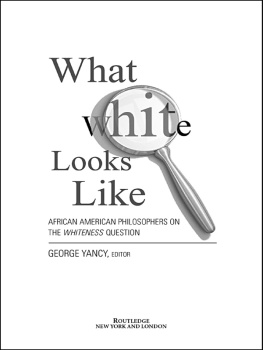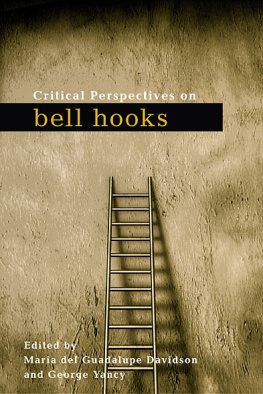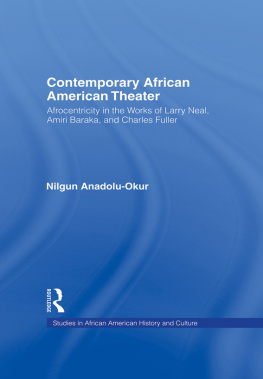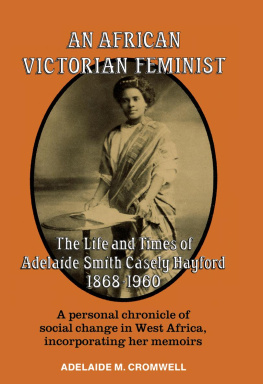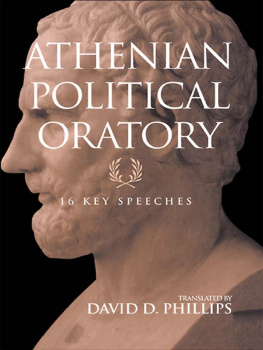This edition published in the Taylor & Francis e-Library, 2004.
All rights reserved. No part of this book may be reprinted or reproduced or utilized in any form or by any electronic, mechanical, or other means, now known or hereafter invented, including photocopying and recording, or in any information storage or retrieval system without permission in writing from the publisher.
What white looks like : African-American philosophers on the whiteness question/edited by George Yancy.
p. cm.
Includes bibliographical references and index.
ISBN 0-415-96615-9 (alk. paper) ISBN 0-415-96616-7 (pbk. : alk. paper)
1. United StatesRace relationsPhilosophy. 2. African American philosophy. 3. Race relationsPhilosophy. 4. EthnicityPhilosophy. I. Yancy, George.
E185.615W438 2004
305.809073dc22
2003022741
ACKNOWLEDGMENTS
Editing books can be somewhat disconcerting. There are personalities with which to deal, time schedules to keep, authors to encourage, author deadlines to maintain, chapters to edit, chapters and introductions of ones own to write, helpful suggestions to make to authors, and so on. With this in mind, I would like to thank the contributors to this volume. Each of them is to be thanked for his/her endurance and dedication to writing philosophically thought-provoking chapters. In the fray of other personal and professional commitments and various obstacles, they came through.
In the spirit of thanking, I would like to acknowledge Damon Zucca, past philosophy editor at Routledge, for his strong show of interest in this project. William Germano, at Routledge, is to be thanked for working with me yet again on another very important philosophical volume. Gilad Foss is to be thanked for his assistance. Mark Henderson, assistant editor at Routledge, is to be especially thanked for his very significant suggestions and for playing such a crucial role in seeing this project to fruition. I would like to thank my production editor Danielle Savin for overseeing the production of the text and keeping me informed about important stages of the text. I would also like to thank Susan Fox, Project Editor, for her patience, diligence, and professionalism. A special thanks goes to Norma McLemore, my copyeditor, for her extraordinarily sharp eye for detail and philosophical insights. Philosophers Bettina Bergo, Linda Alcoff, and Clarence Shole Johnson are to be thanked for their very helpful suggestions regarding various aspects of this volume. Each of them came through when called upon. A special thanks goes to philosopher John McClendon for his responding to the call to write a chapter for this volume with such alacrity. Charles Mills is to be thanked for his critical assessments. I would also like to thank James G. Spady for the many discussions that we have had regarding the structure of whiteness. Those discussions were framed by a very important distinction: It is one thing for whites to theorize whiteness, to talk about deconstructing whiteness, becoming a race traitor; it is another thing for whites to be prepared to do something about whiteness, to be prepared to abdicate white cultural and white politicoeconomic power. I would like to thank those white scholars (David R. Roediger, Noel Ignatiev, Peggy MacIntosh, Christine Sleeter, Alice McIntyre, Jessie Daniels, Mike Hill, Greg Moses, Richard Dyer, Jane Lazarre, and others) who have sincerely attempted to deracinate their white-skin privileges, to render benignassuming that this is even possibletheir whiteness and the value that it carries over and above their intentional actions.
I would like to thank my uncle William L. Banks for his encouragement and his principled posture toward his Christian beliefs. Of course, his scholarship and productivity are standards for me to emulate. Uncle William has been there when I most needed him. I would like to thank Ruth Yancy for her enduring show of love. My in-laws, Geoff and Lillian are to be thanked for their support. Lillian is to be especially thanked for her rationale concerning the importance of this text. I would also like to thank Ron Hankison for his honest discussions regarding his own whiteness. In an email discussion, he wrote:
Even though one may not be born white, it sure as hell feels like one has. There is no self-conscious, ceremonial introduction to the privileges and power sites of whiteness. On the contrary, white people are constantly reminding each other of how difficult and perilous life is for themindeed, for everybody. This is another example of how whiteness does its workby constantly asserting the opposite of what is objectively true, white people constantly reinforce their perception that they are at some kind of terrible risk. And by feeling constantly that they are at risk (of attack, loss of power, loss of prestige, or, in the most common fear, loss of money) they feel the importance of maintaining a constant, vigilant posture of defense.
I would especially like to thank Adrian, Gabriel, and Elijah. They are three utterly important human beings who make my life rich and meaningful, and, yet, who force me to mourn aspects of human finitude, for they are so incredibly precious to me. So, I work for them. For they are the future and must someday seriously confront issues of whiteness, blackness, racism, disrespect, hurtful words, inquisitive gazes, looks that stereotype them as exotica, and so on. Perhaps when burdened with some race-related conundrum, some deeply personal question about racial identity, and the social ontology of racial performance, this work will prove helpful as they turn to Daddys philosophical voice.
I would also like to give tribute to my wife, Susan J. Hadley. Sometimes acknowledgments lose their significance when stated so many times. Not with this one. Every day I am thankful for her companionship. All our moments togethersome trying, others sublimeare testimony to a life lived thankfully, to a committed friendship that requires real work and dedication, to moments of risked vulnerability, and to a strong and loving impulse to continue sharing our lives together despite lifes many obstacles and challenges.
CONTRIBUTORS
Robert E. Birt teaches philosophy at Morgan State University in Baltimore, MD. He is editor of The Quest for Community and Identity: Critical Essays in Africana Social Philosophy (Rowman & Littlefield, 2002). His research interests include Africana philosophy, existential philosophy, critical theory, and philosophical anthropology. His articles have appeared in International Philosophical Quarterly, Man and World, which has since been renamed The Continental Philosophy Review, Social Science Information, Quest: Journal of African Philosophy, and Philosophical Forum.
Blanche Radford Curry

